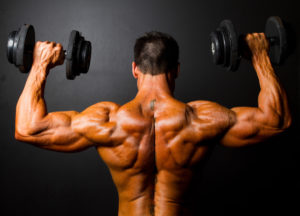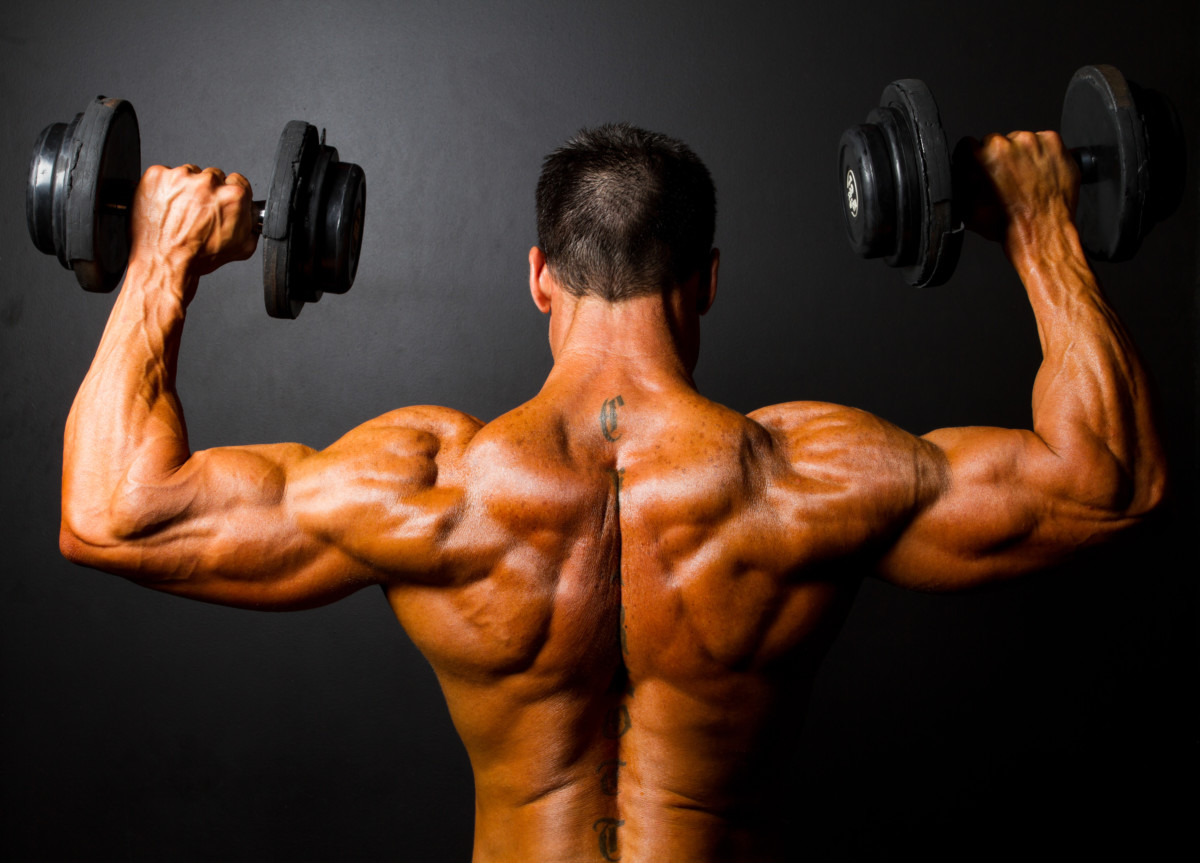
It’s not true that all gay men spend an inordinate amount of time in the gym, but it sure seems like it’s all of them. For most gay men, it’s just routine. There is something about gay male culture world-wide that seems to support the “gym lifestyle”, whether it’s for health reasons or for the aesthetics of the muscular male body. While some would decry this as being about body shaming, “Adonis Complex”, and a lot of other negative concepts, I’d like to focus today on the more positive aspects of this trait of gay men and the gym, and its contribution to gay men’s mental health.
In my practice as a psychotherapist specializing in gay men’s mental health for over 29 years (in 2021), I have treated my share of cases with Body Dysmorphic Disorder, Obsessive-Compulsive Disorder (with issues about the body), eating disorders (which are more prevalent in gay men than straight men), and cases of low self-esteem that have to do with the body. Cognitive-Behavioral Therapy, my favorite (but not exclusive) mode of treatment, has been consistently effective in helping guys with these disorders. And while shaming and competitiveness can give the gay male community an ugly edge at times, I prefer to focus on the positive, as I believe a general optimism and positive outlook is a good general life tool that supports overall good mental health and well-being.
For clients in therapy, I have noticed a very consistent positive relationship between the guys who are physically active and their improved mental health. This makes both psychological and physiological sense, for things like circulation, ease of movement, stamina, regulated metabolism, digestion, rest, and stress management. I believe for us to keep that positive outlook to manage our daily lives, we need inspiration from others. These can be historical figures we admire, famous people we admire who are our contemporaries, or just people we come across. This year, I’ve been particularly inspired by a number of (straight, actually) fitness experts who use Facebook often to post inspirational statements, quotes, and photos. These include Eric Janicki (www.ejanickifitness.com), TJ Wilk (https://www.facebook.com/TjWilkFitness/) and Nimai Delgado (especially fascinating because he’s a vegan bodybuilder, something that too many say “can’t be done”; https://www.instagram.com/nimai_delgado/).
I learn something different, and I get a different angle on inspiration, from each one. From a business standpoint, all of these guys make their living from providing personal training services, in-person or online, and do fitness plan and diet consultations remotely, as well as represent supplement lines or clothing lines. In addition to all things fitness, these guys are good examples of the successful solo entrepreneur as small business owners, something I coach frequently in my practice with clients and have written other articles about.
Eric Janicki is inspiring because from a physique point of view, he is the biggest and probably the most photographed as a fitness model. I see him as someone who has really built his body over time, and I think this is a metaphor for how we build success in anything over time, and with consistent effort. In Eric’s case, and those of his clients, this would be in their bodies, but if you think about it, you could also say that we build in terms of our resilience to face life’s hardships (such as living with chronic illness, such as HIV, or psychiatric conditions, like PTSD, ADD, OCD, or Panic Disorder, etc.). We build wealth and financial security over time in our careers, as gay financial planner David Rae would say. This concept of “building” can be about our bodies, but it can also be about our career/skill set/professional identity, financial security, a relationship with a partner/spouse, a home, a creative project, or healing from past abuse. A friend of mine is a training client of Eric’s, and what he likes about Eric the most is that there are subtle ways to build certain muscles that take experience, insight, even “finesse”, and this is also a metaphor for life because when we really excel at what we do, our experience often gives us little “inside tips” that make us stand out from the rest, and getting good at something – really, really good – is often the accumulation of these tips from experience that takes years to master.
Nimai Delgado is from Argentine parents but raised in Mississippi in a primarily Hindu enclave, and he was raised vegetarian from birth (he became vegan later). He inspires because there are many in the bodybuilding and fitness community who scoff that good muscle cannot be gained without the whole “chicken and rice” diet, and this isn’t so. Nimai has said in interviews that when we consume meat, we are consuming the spirit of the animal who is terrified and stressed at the time of slaughter, and when we are meat-free, we are actually free of consuming this, too. His posts and guidance show that a guy can have a bodybuilder’s physique without meat, and I have benefited myself as a vegetarian/pescatarian who follows his workout routines and his bulking and cutting diet plans (albeit imperfectly, I need to follow them more closely to get his kind of results!). What inspires me about Nimai especially is that with determination, education/skill/know-how, patience, and dedication, that which “can’t be done” can actually be done. This is true not only for him as a vegan bodybuilder, but that spirit can be applied to so many other things. From a therapy point of view, we can overcome past hardships. We can endure tough times that try our patience and our faith in humanity. We get to start each day fresh with the resolve that we will work toward our goals even when others might not be encouraging; haters gonna hate but we just keep doing what we do.
All of the above guys are straight, but they each have an extensive network of gay male clients and friends, and they embody the great friendships that can happen when straight male allies help gay men to be at their best with a minimum of drama.
I get inspiration from many different figures whom I feel energize my goals and fuel my daily life, including great leaders of the past like FDR, Martin Luther King, John F. Kennedy, or scientists like Jonas Salk (discoverer of the polio vaccine), or Alan Turing (the gay computer genius who helped win World War II), or even kind-hearted entertainers like gay-icon divas such as Stevie Nicks (who helps a lot of veterans), Dolly Parton (who leads charity work in literacy and books), and Cher (who helps children with cleft palate and other facial deformities). But on a more direct level, guys like Eric, Chad, TJ, and Nimai (who are all straight, by the way, but all gay-affirmative) inspire my daily life balancing my work and professional identity with my personal identity, trying to take care of myself as a middle-aged person who has lived with HIV for over 31 years (in 2021). I think my involvement in many fitness activities has helped me with that.
The connection between fitness and good gay men’s mental health goes on. When we are active, we are practicing self-care for the immediate (day!) and for the long-term, as we all age. I’m currently doing some research on the concept of Gay Men and Healthy Aging, so I’ll be writing more on this. Being active in many ways (not just weight-lifting, but others, too) is good self-care for the body, sure, but also for the mind, maintaining strong bones, preserving mobility and ease of movement, easing circulation, running the metabolism, and keeping the wonderful machines that are our bodies running. I’ve learned from my healthiest elderly relatives (and there have been many!) that the ones who were especially physically active in both their youth AND in middle age (or beyond) were overall the healthiest, physically and mentally, well over 90 years old. That is a correlation that I believe is wise, and one I want to follow, and encourage others to.
We have to keep a reasonable, wise mind about fitness. Fads, extremes, and abuses are obviously too much, and everyone has to decide for themselves what they are willing to do and what they can afford to do in terms of time, money, and effort. In order to avoid negative social pitfalls like Body Fascism or Adonis Complex, we have to keep our minds sharp with critical thinking and approach our own self-care plan with critical thinking and, I believe, lots of consultation from fitness professionals, physicians, perhaps chiropractors or physical therapists, nutrition experts, and other professionals (therapists!) who support our overall physical and mental health and well-being, for the long term. (For another article on fitness motivation, “Moved to Move”, see here).
If you would like help with motivation and support for consistent self-care, consider having some therapy or coaching sessions. Everyone is different, but having a support system can help you reach your goals. I provide this to people in LA, as well as remotely by phone or webcam sessions all over the world. Call or text 310-339-5778 or email Ken@GayTherapyLA.com for more information.


